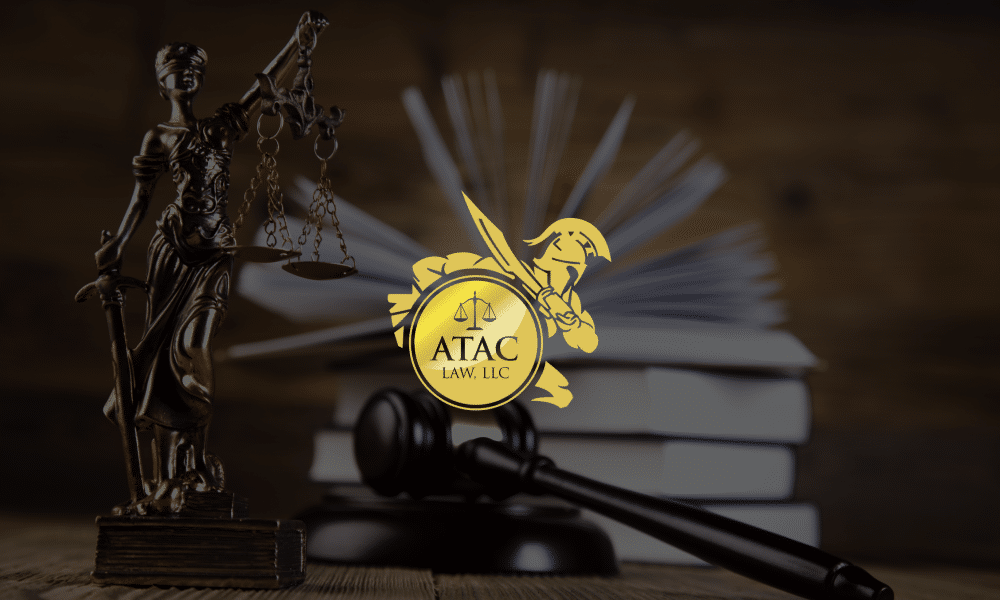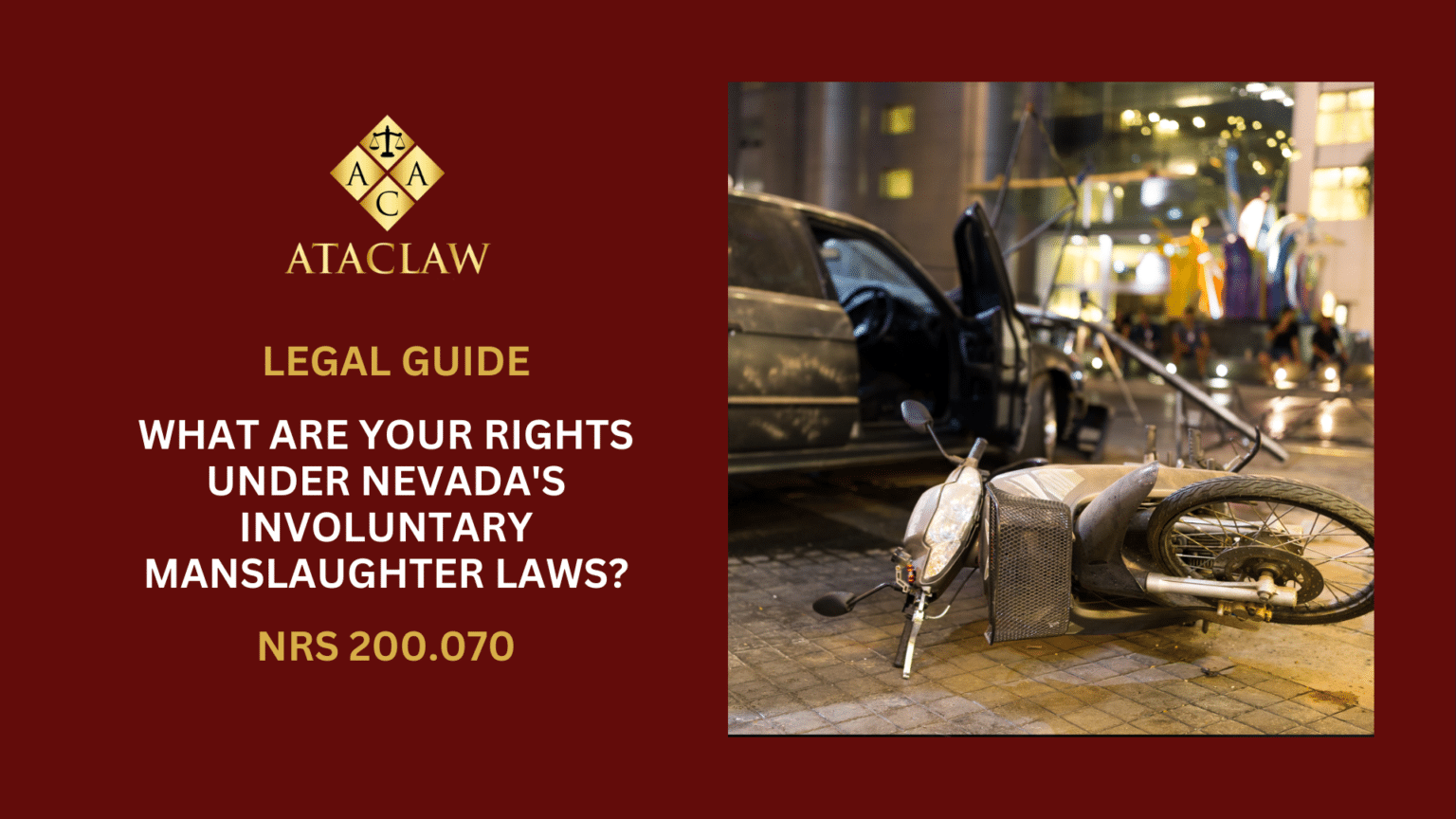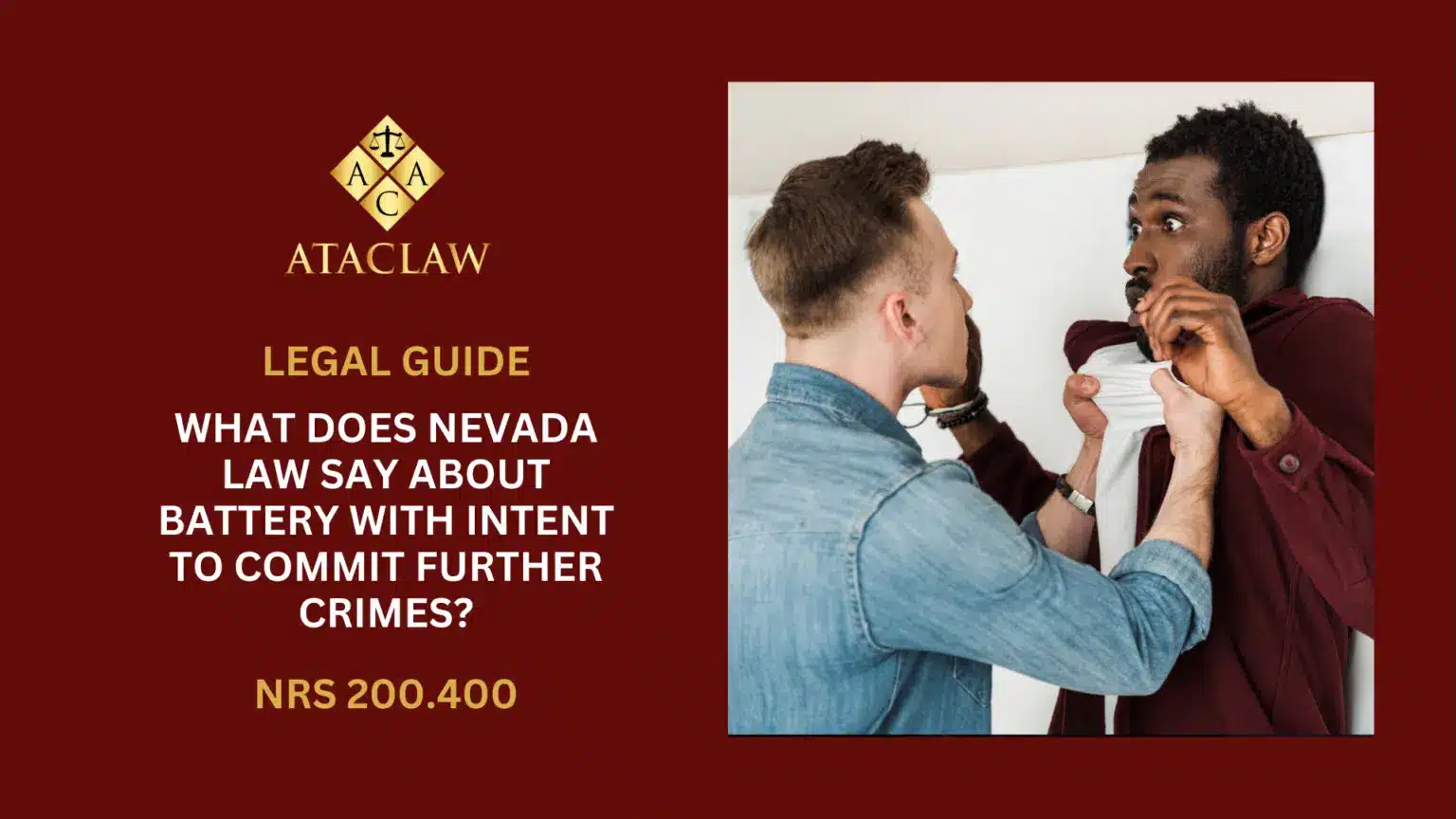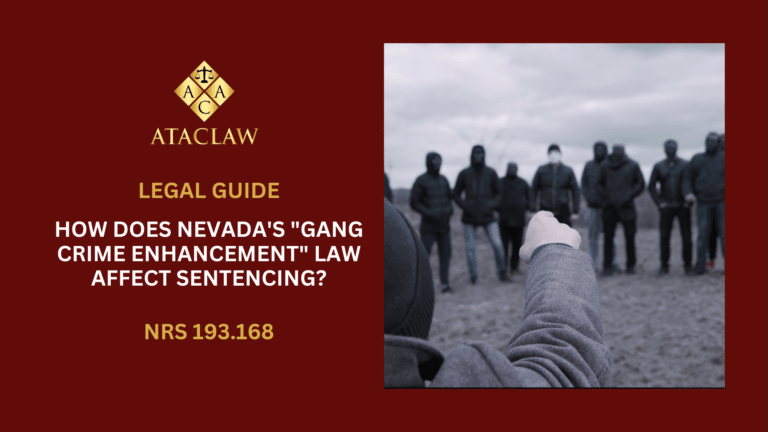In Nevada, the line between a seemingly harmless action and a chargeable offense can sometimes blur, drawing concerns from residents and visitors alike. Reckless endangerment, as outlined by Nevada Revised Statute (NRS) 202.595, encapsulates a range of behaviors that might seem trivial at first glance but carry potential legal consequences. ATAC LAW is here to shed light on what constitutes reckless endangerment in Nevada, its repercussions, and scenarios that could inadvertently involve you in legal troubles.
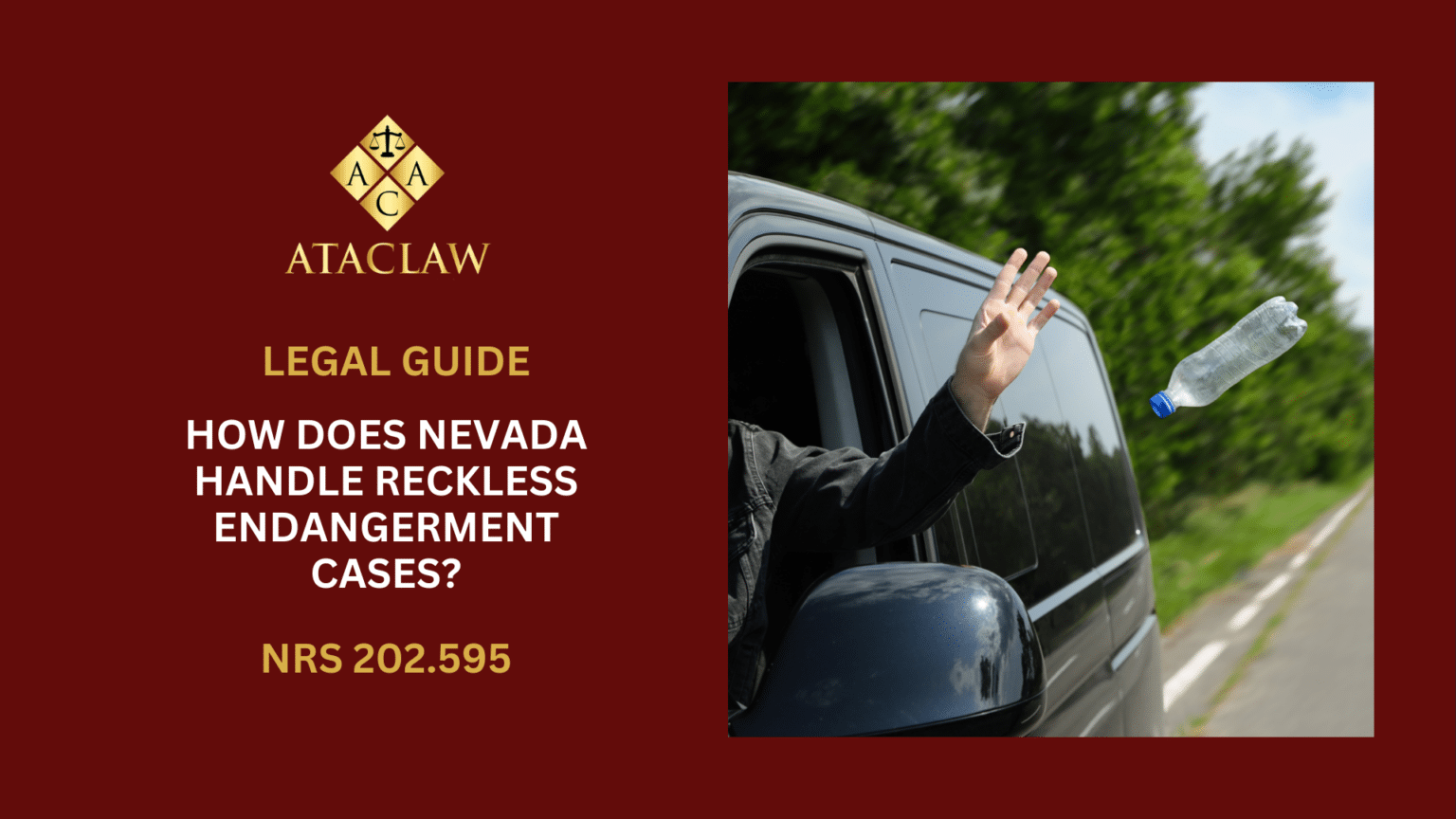
What is Reckless Endangerment in Nevada?
Nevada law describes reckless endangerment as any action, or neglect of a lawful duty, performed with a lack of concern for the safety of others or their property. This intentionally broad definition aims to encompass a wide range of hazardous behaviors, making it a gross misdemeanor. Individuals found guilty can face up to 364 days in jail along with fines reaching $2,000.
Imagine a scenario where an individual decides to throw large rocks off an overpass onto a busy highway below. This act presents a clear and substantial danger to motorists driving underneath – the falling rocks could smash windshields, cause drivers to lose control, or result in collisions, potentially leading to serious injuries or fatalities.
Since the person throwing the rocks is likely aware that highways are areas with high-speed vehicular traffic and understands the risks associated with dropping heavy objects onto moving vehicles, their actions can be seen as showing a blatant disregard for the safety of others. Even if no one is hurt or killed, the mere act of creating the hazardous situation could qualify as reckless endangerment because it exposes people to a significant risk of harm.
What Are the Legal Penalties for Reckless Endangerment in Nevada?
Understanding the potential legal outcomes of a reckless endangerment charge in Nevada is crucial for anyone facing such allegations. The penalties can vary significantly depending on the severity of the incident.
Penalties for Reckless Endangerment:
Reckless endangerment is classified as a gross misdemeanor in Nevada under most circumstances, provided the conduct did not result in substantial bodily harm or death. The potential penalties for this misdemeanor level include:
- Fines: Up to $2,000
- Jail Time: Up to 364 days
However, if reckless endangerment leads to serious injury or a fatality, the charges escalate to a category C felony. The consequences become considerably more severe, including:
- Prison Time: Between 1 and 5 years
- Fines: Up to $10,000
Negotiating Penalties
Depending on the specifics of your case, there may be opportunities for plea bargaining, where a reckless endangerment charge could potentially be reduced to a lesser offense such as jaywalking or disturbing the peace. These outcomes can significantly impact the severity of the penalties involved.
Immigration Consequences of Reckless Endangerment
The ramifications of reckless endangerment charges for a non-citizen immigration status can be significant. While the specifics may vary depending on individual circumstances, several general outcomes are critical to consider:
- Deportation Risk: Non-citizens, including lawful permanent residents, may face deportation if convicted of certain offenses. Reckless endangerment, especially if classified as a felony or if it involves moral turpitude, could potentially trigger removal proceedings.
- Inadmissibility: A conviction may render a non-citizen inadmissible, meaning they could be denied re-entry into the United States, refuse an adjustment of status, or be ineligible for certain visas or green cards.
- Impact on Naturalization: For those seeking U.S. citizenship, a reckless endangerment conviction can impact one’s good moral character assessment, potentially delaying naturalization or leading to a denial of the application.
Can Reckless Endangerment Charges from Cycling Under the Influence Be Dismissed in Nevada?
Successfully challenging reckless endangerment charges in Nevada, especially in instances involving cycling under the influence (CUI), typically revolves around the precise circumstances of the case. One effective defense approach is to demonstrate that the defendant did not engage in a behavior that demonstrated a “willful and wanton disregard for the safety of persons or property.”
Scenario: Jane cycles to a local pub where she orders a single beer. Upon leaving, a police officer observes her exiting the pub and initiating her bike ride home. Mistakenly presuming intoxication, the officer detains Jane and processes her at the local detention center for reckless endangerment.
In this scenario, Jane’s actions were harmless, and she displayed no dangerous behaviors that could be considered a threat to public safety. The assumption made by the officer that Jane would potentially cause trouble while biking was unfounded, especially considering she consumed only one beer and was in full control of her bicycle. If Jane’s attorney from ATAC LAW can persuade the District Attorney that her actions were not careless or threatening to public or private safety, there’s a strong case for dismissing the charges.
Typical evidence in these cases might include CCTV footage from the premises, statements from eyewitnesses, data from GPS tracking, and possibly expert testimony if a traffic incident was involved. These pieces of evidence can provide critical insights into the exact behavior and state of the defendant at the relevant times.
How Can You Defend Yourself Against Reckless Endangerment Allegations in Nevada?
Being accused of reckless endangerment in Nevada is a serious matter, but there are established defense strategies that can be employed to challenge such charges effectively. Here are some key defenses that have been instrumental in safeguarding the rights and reputations of our clients.
Key Defenses Against Reckless Endangerment:
- No Real Threat Was Posed: In instances where a law enforcement officer may have misconstrued the situation, we can argue that your actions were unlikely to cause harm.
- Wrongful Identification Occurred: When a crime has taken place, but there’s uncertainty around the perpetrator, it is possible that you were incorrectly identified as the offender.
- The Action Wasn’t Reckless: Demonstrating that your conduct was merely negligent or unintentional can dismantle the argument for a reckless endangerment charge.
- Exculpatory Evidence Supports You: Presenting evidence that vindicates your actions, such as video footage or witness testimonies, can be a powerful tool in proving your innocence.
Confronting charges of reckless endangerment demands a solid legal strategy and an in-depth understanding of the law. ATAC LAW is adept at examining each case through a critical lens to identify the most effective defense pathway for our clients. Remember, being charged does not equate to guilt, and with the right approach, it is possible to counter the allegations and maintain your freedom and integrity.
Is It Possible to Seal a Reckless Endangerment Record in Nevada?
In Nevada, the ability to seal your criminal record depends on the specific classification of the reckless endangerment charge you faced:
- Category C Conviction: If you were convicted of reckless endangerment as a category C felony, you’re eligible to apply for a record seal five years after your case has been officially closed.
- Gross Misdemeanor Conviction: For those convicted of a gross misdemeanor under reckless endangerment charges, the waiting period is reduced to two years following the closure of your case.
It’s noteworthy to mention that if your reckless endangerment charge was dismissed, there’s no waiting period to apply for a record seal, allowing immediate action to clear your record.
Securing a record seal is a procedural step towards erasing the legal shadow cast by past charges, significantly aiding in employment, education, and housing opportunities. The process involves legal documentation and thorough compliance with Nevada’s legal requirements, underscoring the importance of accurate and timely submissions.
Whether you find yourself accused following a simple misunderstanding or a moment’s lapse in judgment, ATAC LAW stands ready to provide clarity and defend your rights. Understanding the boundaries of lawful conduct and the potential for legal risk in everyday activities is essential for all Nevada residents and visitors. For those facing charges or seeking to avoid legal pitfalls, knowledge of NRS 202.595 and expert legal advice from ATAC LAW can make all the difference.
For further legal assistance and to discuss your case with an expert, don’t hesitate to contact ATAC LAW.

